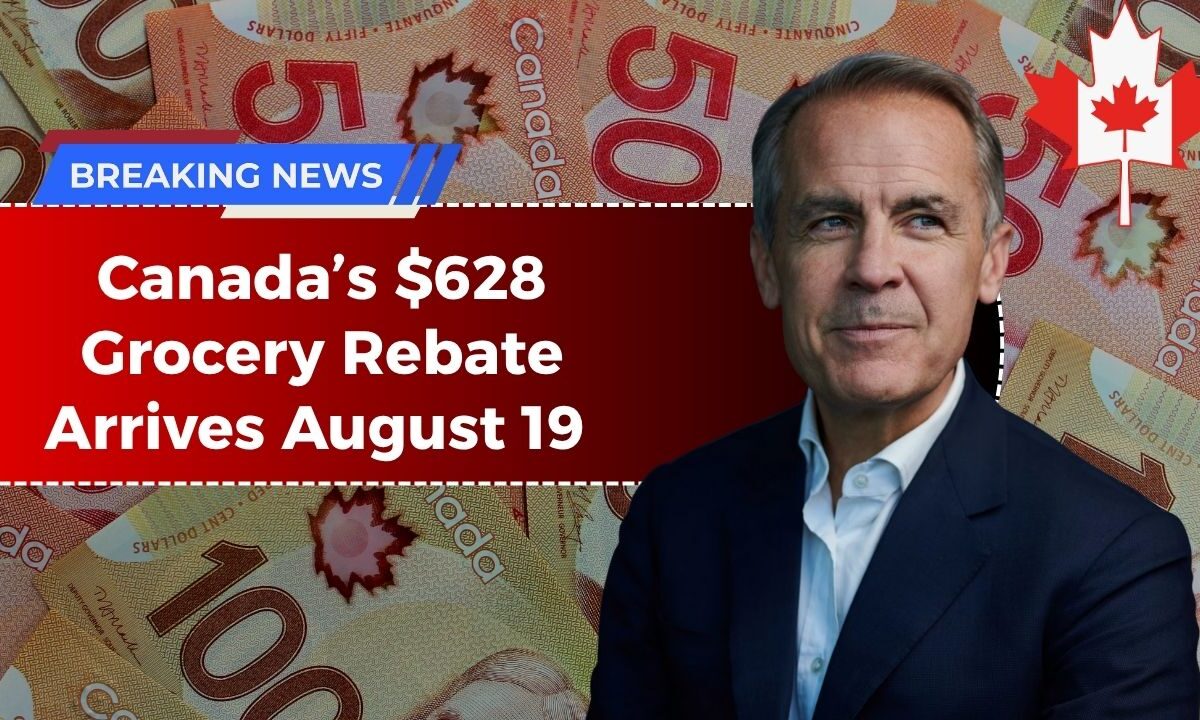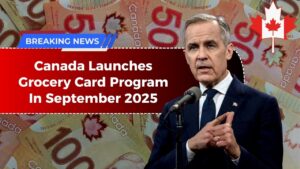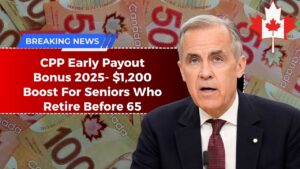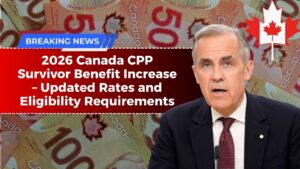As the cost of living continues to surge across Canada, the federal government has introduced a one-time $628 grocery rebate to support low- and modest-income households.
Administered by the Canada Revenue Agency (CRA), this tax-free payment will hit bank accounts on August 19, 2025, offering timely relief from rising food prices.
Why the Grocery Rebate Was Introduced
Rising grocery costs are outpacing overall inflation, placing additional strain on Canadian families—especially those with fixed or limited incomes.
The Canada Grocery Rebate 2025 is designed to help eligible households offset the cost of food, part of a broader affordability strategy aimed at reducing financial stress.
This rebate follows similar relief measures issued in recent years, signaling a sustained government effort to assist Canadians navigating economic uncertainty.
Key Details About the 2025 Grocery Rebate
Here’s an overview of what to know about the upcoming rebate:
| Feature | Details |
|---|---|
| Payment Date | August 19, 2025 |
| Maximum Amount | Up to $628 |
| Payment Type | One-time, tax-free |
| Application Needed | No – automatic if eligible |
| Administered By | Canada Revenue Agency (CRA) |
| Eligibility Basis | 2024 tax return and GST/HST credit status |
Who Qualifies for the Canada Grocery Rebate?
To receive the 2025 grocery rebate, individuals must meet all of the following conditions:
- Filed their 2024 income tax return
- Eligible for the GST/HST credit
- Canadian resident in August 2025
- Fall within CRA’s low- or modest-income thresholds
The CRA automatically determines eligibility based on your income and family size as submitted in your tax return.
Rebate Amounts Based on Household Type
The rebate amount depends on family size, marital status, and income. Here are estimated maximum payments by household category:
| Household Type | Estimated Rebate |
|---|---|
| Single adult, no children | Up to $234 |
| Married couple, no children | Up to $306 |
| Single parent with one child | Up to $387 |
| Couple with two children | Up to $628 |
| Senior living alone | Up to $255 |
Note: Final amounts vary depending on your 2024 income level and benefit eligibility.
How and When Will You Get Paid?
The CRA will issue the rebate on August 19, 2025, through:
- Direct Deposit: If enrolled, the rebate will arrive in your account the same day.
- Cheque by Mail: If not enrolled, it may take additional time due to postal delivery.
To avoid delays:
- Update your banking information in CRA My Account
- Ensure your 2024 taxes are filed and assessed
- Verify your mailing address
How to Confirm Eligibility and Payment Amount
To check if you’ll receive the rebate:
- Log into CRA My Account
- Click on “Benefits and Credits”
- Review your GST/HST credit status
- Confirm your 2024 Notice of Assessment
- Check your banking and mailing details
All payment information will be visible once the CRA finalizes eligibility assessments.
Why This Rebate Is Important
The $628 rebate goes beyond a simple payment. It provides:
- Relief from grocery inflation
- Direct support for low-income earners
- Targeted assistance for single parents and seniors
- A buffer during peak expense periods
With rising expenses in housing, childcare, and food, this rebate ensures families have breathing room when they need it most.
The Canada Grocery Rebate 2025 is a vital form of financial support at a time when everyday essentials are becoming less affordable.
With payments arriving August 19, eligible Canadians should ensure their CRA accounts and tax filings are in order to receive this tax-free rebate without delay.
This initiative reflects a meaningful step toward helping Canadians manage the rising cost of living—one grocery bill at a time.
FAQs
Do I need to apply for the Canada Grocery Rebate?
No. If you filed your 2024 taxes and qualify for the GST/HST credit, the payment will be issued automatically.
What happens if I didn’t file my 2024 tax return?
You must file your 2024 return to be eligible. If you miss this, you won’t receive the payment.
Will there be more grocery rebates in the future?
While this is a one-time payment, further rebates may be introduced depending on economic conditions and government policies.




